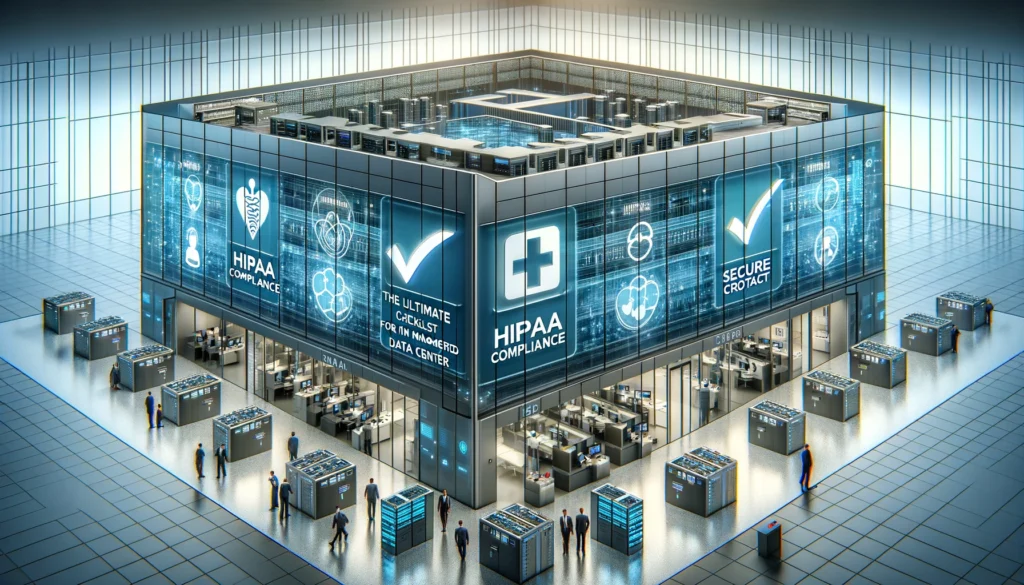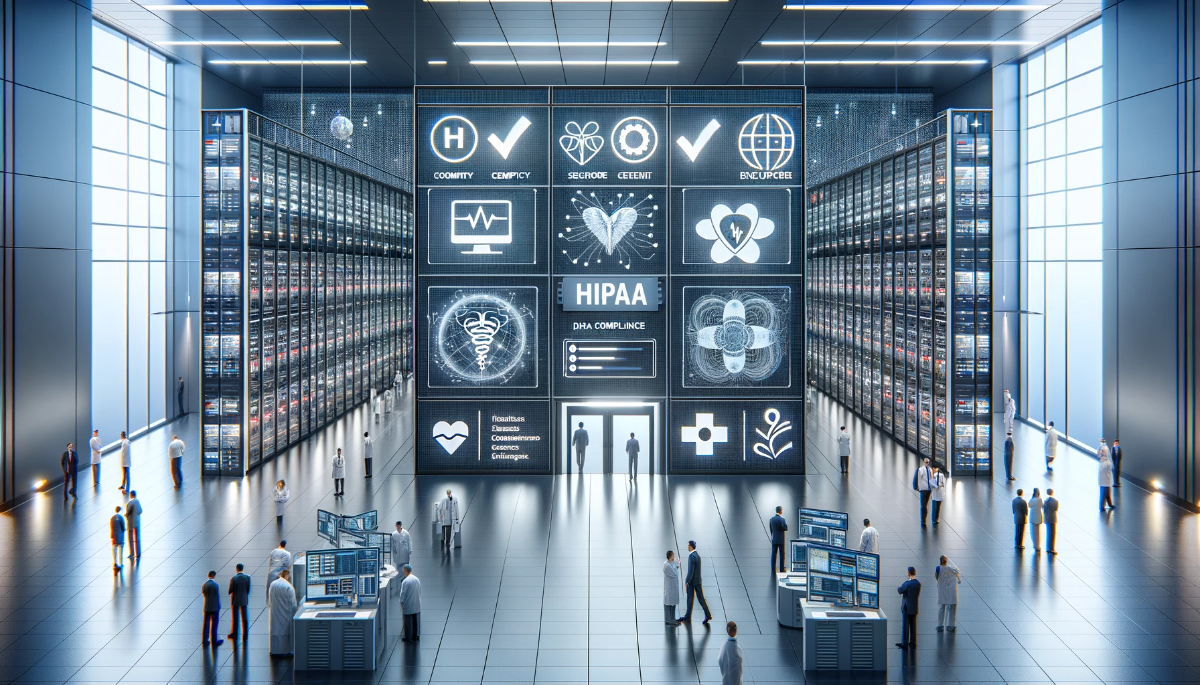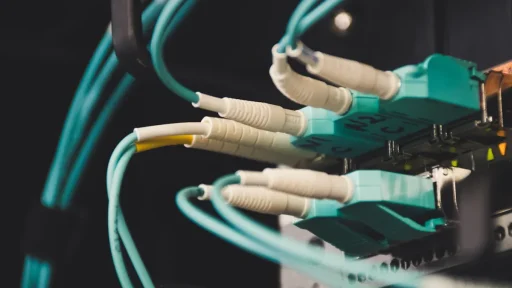HIPAA (Health Insurance Portability and Accountability Act) compliance is a critical aspect of data center operations, especially in the healthcare industry. Data centers play a crucial role in storing and managing sensitive patient information, making it essential for them to adhere to HIPAA regulations to ensure the security and privacy of this data. In this article, we will explore the basics of HIPAA compliance in data centers, the importance of data security in healthcare, HIPAA regulations and compliance requirements, administrative, physical, and technical safeguards for HIPAA compliance, risk assessment and management, training and awareness for data center personnel, audit and monitoring processes, and best practices for achieving HIPAA compliance in data centers.
Key Takeaways
- HIPAA compliance is essential for data centers that handle healthcare information.
- Data security is crucial in healthcare to protect patient privacy and prevent data breaches.
- HIPAA regulations and compliance requirements must be followed to avoid penalties and legal consequences.
- Administrative, physical, and technical safeguards are necessary to ensure HIPAA compliance in data centers.
- Regular risk assessments, training, and monitoring are key components of maintaining HIPAA compliance in data centers.
Understanding the Basics of HIPAA Compliance in Data Centers
HIPAA is a federal law enacted in 1996 that sets standards for the protection of sensitive patient health information. Its primary goal is to ensure the privacy and security of this information while allowing for its efficient exchange between healthcare providers, insurers, and other entities involved in healthcare operations. HIPAA compliance is particularly important in data centers that handle healthcare data because any breach or unauthorized access to this information can have severe consequences for patients and healthcare organizations.
HIPAA regulations consist of three main rules: the Security Rule, the Privacy Rule, and the Breach Notification Rule. The Security Rule establishes standards for protecting electronic protected health information (ePHI) by requiring covered entities to implement administrative, physical, and technical safeguards. The Privacy Rule governs the use and disclosure of individuals’ health information by covered entities and sets limits on how this information can be shared. The Breach Notification Rule requires covered entities to notify affected individuals, the Department of Health and Human Services (HHS), and sometimes the media in the event of a breach of unsecured ePH
The Importance of Data Security in Healthcare
Data security is crucial in healthcare due to the sensitive nature of patient health information. Healthcare data includes personal identifiers, medical history, diagnoses, treatments, and other sensitive information that, if exposed or accessed by unauthorized individuals, can lead to identity theft, fraud, and other harmful consequences for patients. Additionally, healthcare organizations have a legal and ethical obligation to protect patient privacy and maintain the confidentiality of their health information.
There have been numerous high-profile data breaches in the healthcare industry in recent years, highlighting the importance of data security. For example, in 2015, Anthem Inc., one of the largest health insurers in the United States, suffered a massive data breach that exposed the personal information of nearly 78.8 million individuals. This breach not only resulted in financial losses for the company but also put the affected individuals at risk of identity theft and other fraudulent activities. These incidents emphasize the need for robust data security measures and strict compliance with HIPAA regulations in data centers.
HIPAA Regulations and Compliance Requirements
HIPAA regulations outline specific requirements that covered entities, including data centers, must meet to achieve compliance. The Security Rule, Privacy Rule, and Breach Notification Rule collectively establish standards for protecting patient health information and ensuring its privacy and security.
The Security Rule requires covered entities to implement administrative, physical, and technical safeguards to protect ePH
Administrative safeguards include policies and procedures that govern the conduct of employees and contractors who handle ePHI. These safeguards include workforce training, access controls, contingency planning, and risk assessments.
Physical safeguards involve measures to protect the physical environment where ePHI is stored or processed. This includes access controls to data centers, video surveillance systems, secure storage areas for backup media, and policies for disposing of physical media containing ePH
Technical safeguards refer to the technology used to protect ePH
This includes access controls such as unique user IDs and passwords, encryption of ePHI during transmission and storage, audit controls to track access to ePHI, and regular monitoring of systems for unauthorized activity.
The Privacy Rule governs the use and disclosure of individuals’ health information by covered entities. It establishes standards for obtaining patient consent, providing individuals with notice of their privacy rights, and limiting the use and disclosure of health information to the minimum necessary for the intended purpose.
The Breach Notification Rule requires covered entities to notify affected individuals, HHS, and sometimes the media in the event of a breach of unsecured ePH
The rule specifies the timeframe and content of breach notifications and encourages covered entities to implement measures to prevent breaches from occurring in the first place.
HIPAA Administrative Safeguards for Data Centers
Administrative safeguards are an essential component of HIPAA compliance in data centers. These safeguards involve policies and procedures that govern the conduct of employees and contractors who handle ePH
Some examples of administrative safeguards in data centers include:
1. Workforce Training: Data center personnel should receive regular training on HIPAA regulations, data security best practices, and their roles and responsibilities in protecting ePH
This training should cover topics such as password security, phishing awareness, and incident response procedures.
2. Access Controls: Data centers should implement access controls to ensure that only authorized individuals can access ePH
This includes unique user IDs and passwords, two-factor authentication, and role-based access controls that limit access to ePHI based on job responsibilities.
3. Contingency Planning: Data centers should have contingency plans in place to address potential disruptions to operations, such as power outages or natural disasters. These plans should include backup and recovery procedures for ePHI, alternative communication methods, and procedures for testing and updating the plans regularly.
4. Risk Assessments: Regular risk assessments should be conducted to identify potential vulnerabilities and threats to ePHI in data centers. These assessments help identify areas where additional safeguards may be needed and inform the development of risk management strategies.
Physical Safeguards for HIPAA Compliance in Data Centers
Physical safeguards are another crucial aspect of HIPAA compliance in data centers. These safeguards involve measures to protect the physical environment where ePHI is stored or processed. Some examples of physical safeguards in data centers include:
1. Access Controls: Data centers should have strict access controls in place to prevent unauthorized individuals from entering areas where ePHI is stored or processed. This includes secure entry points, video surveillance systems, and visitor logs.
2. Secure Storage Areas: Backup media containing ePHI should be stored in secure areas to prevent unauthorized access or theft. These areas should have restricted access, fire suppression systems, and environmental controls to protect the integrity of the media.
3. Disposal of Physical Media: Data centers should have policies and procedures for disposing of physical media containing ePHI, such as hard drives or tapes. These policies should ensure that the media is properly destroyed or wiped to prevent the recovery of ePH
4. Physical Security Audits: Regular physical security audits should be conducted to assess the effectiveness of physical safeguards in data centers. These audits help identify any vulnerabilities or weaknesses that need to be addressed to maintain HIPAA compliance.
Technical Safeguards for HIPAA Compliance in Data Centers
Technical safeguards are critical for protecting ePHI in data centers. These safeguards involve the use of technology to secure and protect electronic health information. Some examples of technical safeguards in data centers include:
1. Access Controls: Data centers should implement access controls to ensure that only authorized individuals can access ePH
This includes unique user IDs and passwords, two-factor authentication, and encryption of ePHI during transmission and storage.
2. Audit Controls: Data centers should implement audit controls to track access to ePHI and monitor for any unauthorized activity. This includes logging and reviewing system activity, conducting regular audits of access logs, and implementing intrusion detection systems.
3. Encryption: Data centers should encrypt ePHI during transmission and storage to protect it from unauthorized access. Encryption ensures that even if ePHI is intercepted or stolen, it cannot be read or used without the encryption key.
4. Regular System Monitoring: Data centers should regularly monitor their systems for any signs of unauthorized activity or security breaches. This includes implementing intrusion detection and prevention systems, conducting vulnerability scans, and reviewing system logs for any suspicious activity.
HIPAA Risk Assessment and Management in Data Centers
Risk assessment and management are crucial components of HIPAA compliance in data centers. Risk assessment involves identifying potential vulnerabilities and threats to ePHI and evaluating the likelihood and impact of these risks. Risk management involves implementing measures to mitigate these risks and reduce the likelihood and impact of potential breaches or unauthorized access to ePH
Regular risk assessments should be conducted in data centers to identify any areas where additional safeguards may be needed. These assessments help data center operators understand their risk profile and prioritize their efforts to protect ePH
Risk management strategies may include implementing additional security controls, updating policies and procedures, conducting regular training and awareness programs, and regularly reviewing and updating risk management plans.
HIPAA Training and Awareness for Data Center Personnel
Training and awareness programs are essential for ensuring HIPAA compliance in data centers. Data center personnel should receive regular training on HIPAA regulations, data security best practices, and their roles and responsibilities in protecting ePH
This training helps ensure that employees understand the importance of HIPAA compliance, are aware of potential risks and threats, and know how to respond to security incidents.
Training programs should cover topics such as password security, phishing awareness, incident response procedures, and the proper handling of ePH
Regular refresher training sessions should be conducted to reinforce these concepts and keep employees up to date with the latest security practices and regulations.
HIPAA Audit and Monitoring for Data Centers
Audits and monitoring are crucial for maintaining HIPAA compliance in data centers. Regular audits help ensure that data center operations are in line with HIPAA regulations and that all necessary safeguards are in place to protect ePH
Monitoring systems and processes help detect any unauthorized access or security breaches in real-time, allowing for a prompt response and mitigation of potential risks.
Audits can be conducted internally or by third-party auditors to assess the effectiveness of administrative, physical, and technical safeguards in data centers. These audits may include reviewing policies and procedures, conducting interviews with personnel, reviewing access logs and system activity, and assessing the physical security of the data center.
Monitoring systems should be implemented to track access to ePHI, detect any unauthorized activity, and generate alerts or notifications when potential security incidents occur. These systems should be regularly reviewed and updated to ensure their effectiveness in protecting ePH
Best Practices for Achieving HIPAA Compliance in Data Centers
Achieving HIPAA compliance in data centers requires a comprehensive approach that includes administrative, physical, and technical safeguards, risk assessment and management, training and awareness programs, and regular audits and monitoring. Some best practices for achieving HIPAA compliance in data centers include:
1. Develop a comprehensive HIPAA compliance program: Data centers should develop a comprehensive program that includes policies and procedures for protecting ePHI, training programs for personnel, risk assessment and management processes, incident response procedures, and regular audits and monitoring.
2. Implement strong access controls: Data centers should implement strong access controls to ensure that only authorized individuals can access ePH
This includes unique user IDs and passwords, two-factor authentication, role-based access controls, and encryption of ePHI during transmission and storage.
3. Regularly update policies and procedures: Data centers should regularly review and update their policies and procedures to ensure they are in line with the latest HIPAA regulations and industry best practices. This includes updating access control policies, incident response procedures, and contingency plans.
4. Conduct regular risk assessments: Regular risk assessments should be conducted to identify potential vulnerabilities and threats to ePH
These assessments help data centers understand their risk profile and prioritize their efforts to protect ePHI.
5. Provide regular training and awareness programs: Data center personnel should receive regular training on HIPAA regulations, data security best practices, and their roles and responsibilities in protecting ePH
Regular awareness programs should also be conducted to keep employees up to date with the latest security practices and regulations.
6. Conduct regular audits and monitoring: Regular audits should be conducted to assess the effectiveness of administrative, physical, and technical safeguards in data centers. Monitoring systems should be implemented to detect any unauthorized access or security breaches in real-time.
HIPAA compliance is a critical aspect of data center operations in the healthcare industry. Data centers play a crucial role in storing and managing sensitive patient information, making it essential for them to adhere to HIPAA regulations to ensure the security and privacy of this data. By implementing administrative, physical, and technical safeguards, conducting regular risk assessments, providing training and awareness programs for personnel, and conducting regular audits and monitoring, data centers can achieve HIPAA compliance and protect the confidentiality, integrity, and availability of ePHI. It is crucial for data centers to prioritize HIPAA compliance to maintain the trust of healthcare organizations and patients who rely on them to protect their sensitive health information.
If you’re interested in understanding the future of data storage, you should check out the article “The Emergence of Hyperscale Data Centers: Understanding the Future of Data Storage.” This informative piece delves into the concept of hyperscale data centers and their role in meeting the growing demands of data storage. It explores the benefits and challenges associated with hyperscale data centers and provides valuable insights into the future of this technology. To read more about it, click here.


FAQs
What is HIPAA?
HIPAA stands for Health Insurance Portability and Accountability Act. It is a federal law in the United States that sets standards for protecting sensitive patient health information.
What is HIPAA compliance?
HIPAA compliance refers to the adherence to the rules and regulations set forth by the Health Insurance Portability and Accountability Act. It ensures that patient health information is protected and kept confidential.
What is a data center?
A data center is a facility used to house computer systems and associated components, such as telecommunications and storage systems.
Why is HIPAA compliance important in data centers?
HIPAA compliance is important in data centers because they often store and process sensitive patient health information. Failure to comply with HIPAA regulations can result in significant fines and legal consequences.
What are some key components of HIPAA compliance in data centers?
Some key components of HIPAA compliance in data centers include physical security measures, access controls, data encryption, regular risk assessments, and employee training.
What are some common HIPAA violations in data centers?
Some common HIPAA violations in data centers include unauthorized access to patient health information, failure to conduct regular risk assessments, inadequate employee training, and failure to implement appropriate physical security measures.
What are the consequences of HIPAA violations in data centers?
The consequences of HIPAA violations in data centers can include significant fines, legal action, damage to reputation, and loss of business. In some cases, individuals may also face criminal charges.






